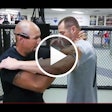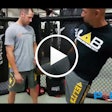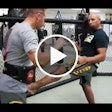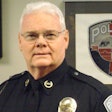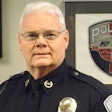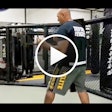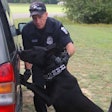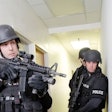"You can't become a tennis pro by watching training videos. If you want to get to Wimbledon you've got to hit the ball."
This quote by police communication specialist Gary McDougall is not only applicable to sports, but to many things we do as police officers as well. Talking to people is no different.
Interpersonal communication is a physical skill and must be trained like any other skill. This means running drills and scenarios that are dedicated to improving an officer's ability to persuade and gain voluntary compliance. When you hire a new officer, you don't assume that they know how to handcuff or use a firearm, so you train them. The same should apply to dealing with people, but for some reason it often isn't.
There's no denying that the ability to reason with and persuade people is a big part of the job. A recent study of police and public interactions in a major Canadian city showed that 98.5% of arrests were made without using force. So why is this critical piece of police work so often overlooked in training? If it is a part of your agency's training, is it being taught in the right way and by the right people?
Police communications and use of force are intertwined. This can be a tough sell for some use-of-force trainers. Too often the 'soft' skills of verbal persuasion are seen as separate to physically controlling people. But how many officers do you know who end up putting their hands on people because they lack the ability to get what they want with their words?
Communication skills should be taught as a component of a complete use-of-force training program. The use-of-force instructors must be intimately familiar with the communications skills being taught so they can be demonstrated and reinforced during use-of-force training. If your communications program is being taught by people who have no front-line police experience, they may lack the credibility needed to get buy-in from officers. Couple this with use-of-force instructors who have no idea what's being taught, or worse, who badmouth the program, and you've just decreased the effectiveness of your training and missed out on an important opportunity.
Bringing in a complete and integrated communications program was a battle for some of the instructors in my agency who came before me. Not only did our use of force instructors have to fight to have communications training added into the syllabus, they also had to convince the powers that be that this training is best taught by them and not by a random negotiator, criminal law instructor or someone with a Ph.D. in communications who would be contracted to come in for that subject alone.
Once you have the green light, the next step is to have your use-of-force instructors trained to teach communications. This allows them to integrate the material into drills and scenarios and reinforce good communications skills throughout training. This can be challenging, given the multitude of certifications and skills that must be maintained by use-of-force instructors.
Set the tone early in training that being a good talker is an expectation. Many new officers think that this is the easy part of the job because they've been talking to people their whole lives. However, just like with everything else in training, getting officers to push their abilities just outside of their comfort zone is where real learning takes place.
If you're not willing to change your behavior and try some new things then you may be doomed to stagnate at your present skill level — the same goes for your communications and use-of-force programs, which ultimately affects the officers on the street.
Dan Fraser is a full time use-of-force and tactics instructor with the Calgary Police Service. He is also trained as a Verbal Judo instructor and Hostage Negotiator. He can be reached at editor@policemag.com.
Related:








